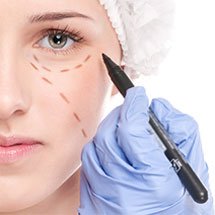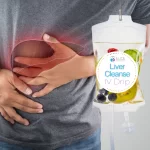As a food handler, you play a vital role in ensuring that the food served to customers is safe and free from harmful contaminants. One of the ways to ensure that you are fit to handle food is by getting a medical check-up. In this article, we will discuss the importance of food handler medical and what they involve.
Why is Food Handler Medical Important?
Food handler medical is essential to protect both the food handler and the customers they serve. When handling food, there is always a risk of spreading harmful bacteria, viruses, or other contaminants that could make people sick. By getting regular medical check-ups, food handlers can identify and treat any conditions that could pose a risk to food safety.
Additionally, food handler medical is often a requirement of local health departments and regulatory agencies. In some places, food handlers are required to obtain a medical certificate before they can work in food handling and preparation. This is done to ensure that all food handlers are healthy and do not pose a risk to the public.
What Does Food Handler Medical Involve?
Food handler medical typically involves a series of tests and evaluations to assess the health of the food handler. The tests can vary depending on the jurisdiction and the type of food handling involved. Here are some of the tests that may be included:
- HEPATITIS B SURFACE ANTIGEN: The Hepatitis B Surface Antigen (HBsAg) test is a blood test that is used to detect the presence of HBsAg in the blood. The test is used to diagnose a Hepatitis B infection.
- HIV P24 AG/AB: The HIV P24 Ag/Ab test is a blood test that is used to detect the presence of both HIV antibodies and the p24 antigen. The p24 antigen is a protein that is produced by the HIV virus shortly after an infection, and it is usually detectable before the body has produced detectable levels of HIV antibodies.
- URINARY LEUCOCYTES: Urinary leukocytes are white blood cells that are present in the urine. The presence of urinary leukocytes can indicate a urinary tract infection (UTI), which can be caused by bacteria or other microorganisms.
- URINE BLOOD: A urine blood test, also known as a urine hemoglobin test, is a medical test used to detect the presence of blood in the urine. This test can be required for food handlers as part of a pre-employment medical examination or as a routine check to ensure they are healthy and safe to work with food. Blood in the urine can be a sign of a urinary tract infection, kidney stones, or other medical conditions. It is also possible for blood to appear in the urine due to strenuous physical activity or other non-medical reasons.
- ANTI–SYPHILIS ANTIBODY: The anti-syphilis antibody test is a blood test used to detect the presence of antibodies against the bacterium that causes syphilis. This test is sometimes required for food handlers as part of a pre-employment medical examination or as a routine check to ensure they are healthy and safe to work with food.
- URINE KETONE: A urine ketone test is a medical test used to measure the presence and concentration of ketones in the urine. Ketones are produced when the body burns fat for energy instead of glucose, which can occur in conditions such as diabetes, fasting, or a low-carbohydrate diet.
Food handler medical is a crucial step in ensuring the safety of the food served to customers. By identifying and treating any potential health risks, food handlers can prevent the spread of harmful contaminants and maintain the integrity of the food they prepare. If you are a food handler, it is important to check with your local health department or regulatory agency to determine the specific requirements for obtaining a medical certificate. At Elite Body Home Polyclinic, we prioritize the health and wellness of every citizen. Call Us Now to know more about medical examinations for Food Handlers or visit this page https://elitebodyhome.com/service/medical-examination-for-food-handlers/














